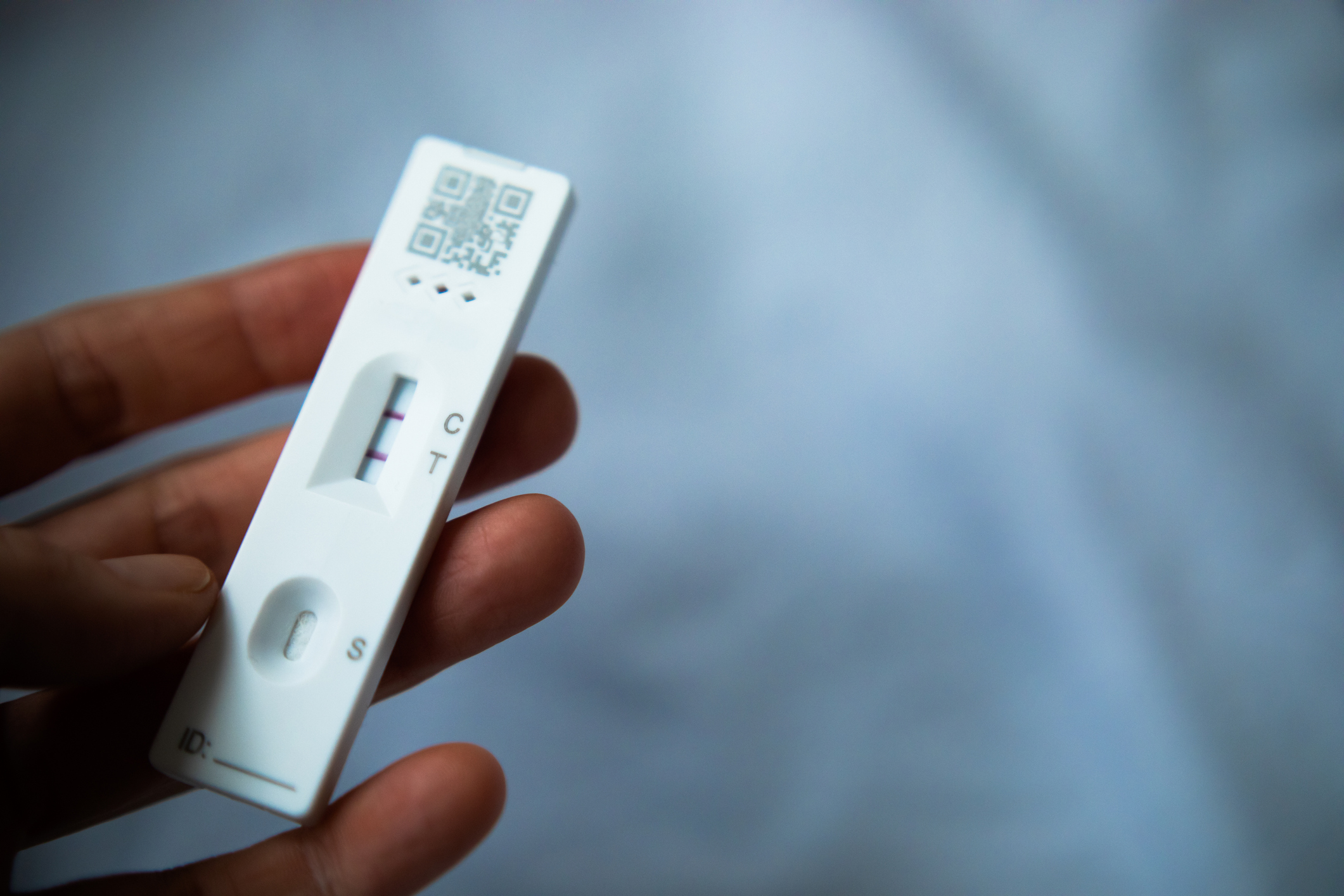Getting COVID-19 while pregnant could cause brain development delays in boys, study finds


A free daily email with the biggest news stories of the day – and the best features from TheWeek.com
You are now subscribed
Your newsletter sign-up was successful
Boys' brain development in the womb may be delayed if the mother contracts COVID-19 while pregnant, a new study published in the Journal of the American Medical Association Network Open finds. The research showed that boys born to people who had COVID-19 during pregnancy were twice as likely to be diagnosed with a developmental disorder in their first 18 months of life, NPR reports. Baby girls did not show the same results.
"Male fetuses are known to be more vulnerable to maternal infectious exposures during pregnancy," according to the study's lead author Andrea Edlow. However, there is only a slight increase in risk, and "most children of moms who have COVID during pregnancy won't have neurodevelopmental consequences even if there is some increase in risk," explains study co-author Roy Perlis.
Importantly, this is still a developing research topic, and a study published in the same journal had a conflicting result claiming "no association was found between mild or asymptomatic maternal SARS-CoV-2 infection during pregnancy and infant cognition, language, or motor development." In order to truly assess whether there are long term-impacts, more research should be done assessing milestones across early childhood, USA Today writes.
The Week
Escape your echo chamber. Get the facts behind the news, plus analysis from multiple perspectives.

Sign up for The Week's Free Newsletters
From our morning news briefing to a weekly Good News Newsletter, get the best of The Week delivered directly to your inbox.
From our morning news briefing to a weekly Good News Newsletter, get the best of The Week delivered directly to your inbox.
"There is growing evidence linking prenatal maternal infection and inflammation and risk for later neurodevelopmental disorders like ADHD, schizophrenia," maternal-infant health expert Catherine Limperopoulos told USA Today. This is due to the body's immune response to the infection, producing proteins to fight infections called cytokines. These proteins can cause inflammation in fetal brains. "There is a link between maternal immune activation, changes in gene expression in the brain, changes in brain development, and long-lasting changes in behaviors," remarked Kim McAllister, a professor at the University of California, Davis to NPR.
"All we can hope to detect at this point are more subtle sorts of things like delays in language and speech, and delays in motor milestones," Perlis said.
A free daily email with the biggest news stories of the day – and the best features from TheWeek.com
Devika Rao has worked as a staff writer at The Week since 2022, covering science, the environment, climate and business. She previously worked as a policy associate for a nonprofit organization advocating for environmental action from a business perspective.
-
 5 thoroughly redacted cartoons about Pam Bondi protecting predators
5 thoroughly redacted cartoons about Pam Bondi protecting predatorsCartoons Artists take on the real victim, types of protection, and more
-
 Palestine Action and the trouble with defining terrorism
Palestine Action and the trouble with defining terrorismIn the Spotlight The issues with proscribing the group ‘became apparent as soon as the police began putting it into practice’
-
 Why is the Trump administration talking about ‘Western civilization’?
Why is the Trump administration talking about ‘Western civilization’?Talking Points Rubio says Europe, US bonded by religion and ancestry
-
 Sepsis ‘breakthrough’: the world’s first targeted treatment?
Sepsis ‘breakthrough’: the world’s first targeted treatment?The Explainer New drug could reverse effects of sepsis, rather than trying to treat infection with antibiotics
-
 Scientists are worried about amoebas
Scientists are worried about amoebasUnder the radar Small and very mighty
-
 Metal-based compounds may be the future of antibiotics
Metal-based compounds may be the future of antibioticsUnder the radar Robots can help develop them
-
 A Nipah virus outbreak in India has brought back Covid-era surveillance
A Nipah virus outbreak in India has brought back Covid-era surveillanceUnder the radar The disease can spread through animals and humans
-
 Trump HHS slashes advised child vaccinations
Trump HHS slashes advised child vaccinationsSpeed Read In a widely condemned move, the CDC will now recommend that children get vaccinated against 11 communicable diseases, not 17
-
 Deaths of children under 5 have gone up for the first time this century
Deaths of children under 5 have gone up for the first time this centuryUnder the radar Poor funding is the culprit
-
 A fentanyl vaccine may be on the horizon
A fentanyl vaccine may be on the horizonUnder the radar Taking a serious jab at the opioid epidemic
-
 Health: Will Kennedy dismantle U.S. immunization policy?
Health: Will Kennedy dismantle U.S. immunization policy?Feature ‘America’s vaccine playbook is being rewritten by people who don’t believe in them’
